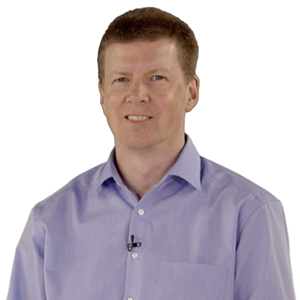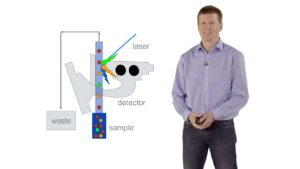Dr. Steffen Schmitt studied biology at the Ruprecht-Karls-University of Heidelberg and completed his PhD in the Department of Cellular Immunology at the German Cancer Research Center (DKFZ). After a short post-doc, he established and led a flow cytometry core lab at the Natural Science and Medical Research Center (NMFZ) at Johannes Gutenberg University of Mainz. Since 2007, Schmitt has been head of the Flow Cytometry Unit of the Imaging and Cytometry Core Facility at the DKFZ in Heidelberg.

Talks with this Speaker
FACS - Fluorescence Activated Cell Sorting
Dr. Steffen Schmitt explains the principles of FACS and describes the basic components of a droplet cell sorter. He gives advice on optimizing the yield, purity, recovery time, and viability of isolated cells. (Talk recorded in May 2018)

Audience:
- Student
- Researcher
- Educators of H. School / Intro Undergrad
- Educators of Adv. Undergrad / Grad
Duration: 30:01



